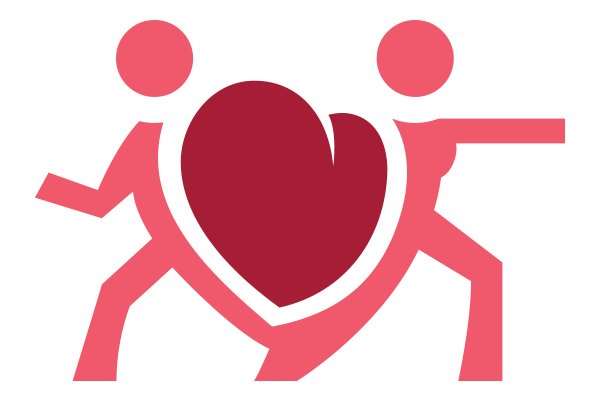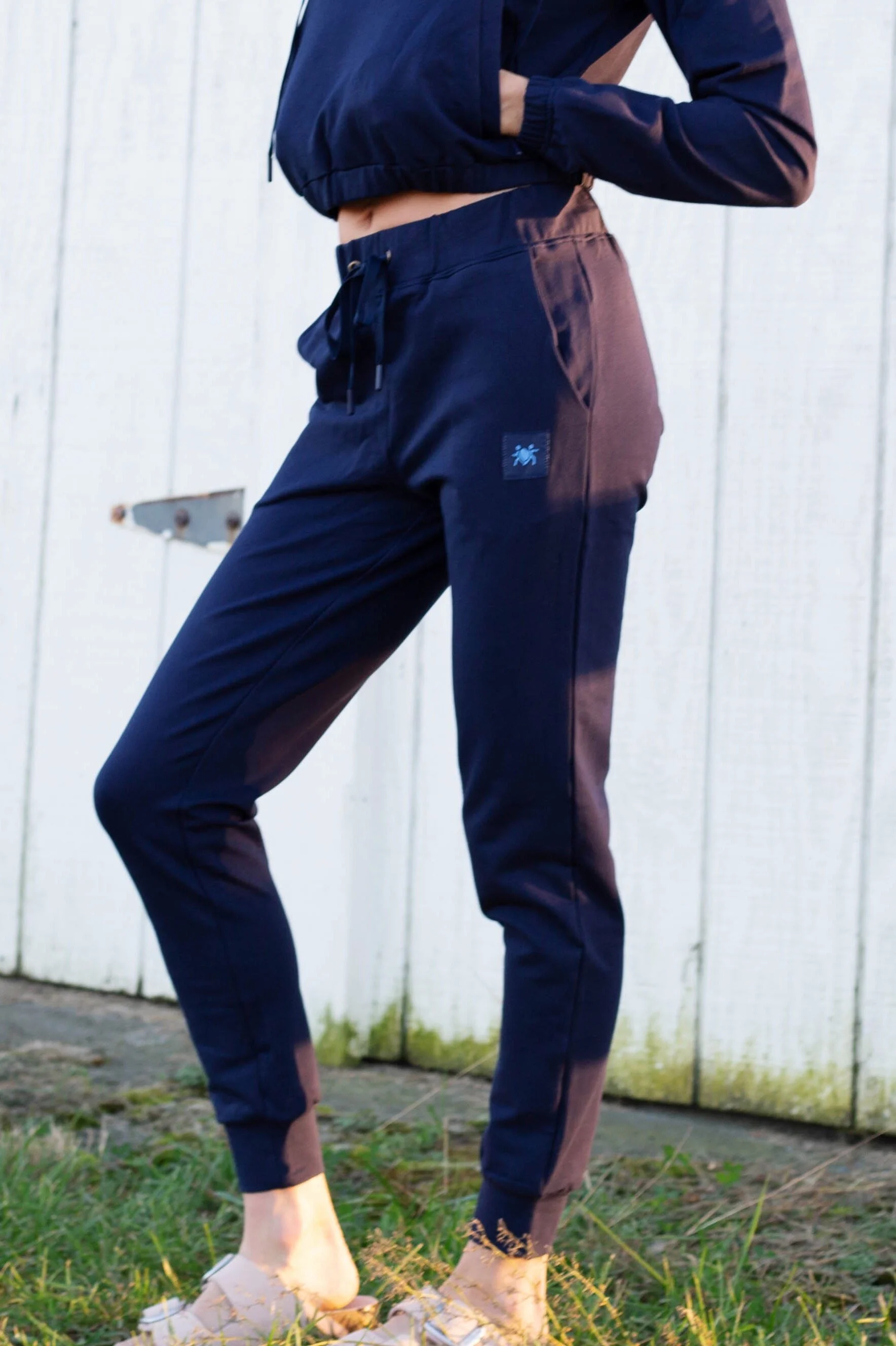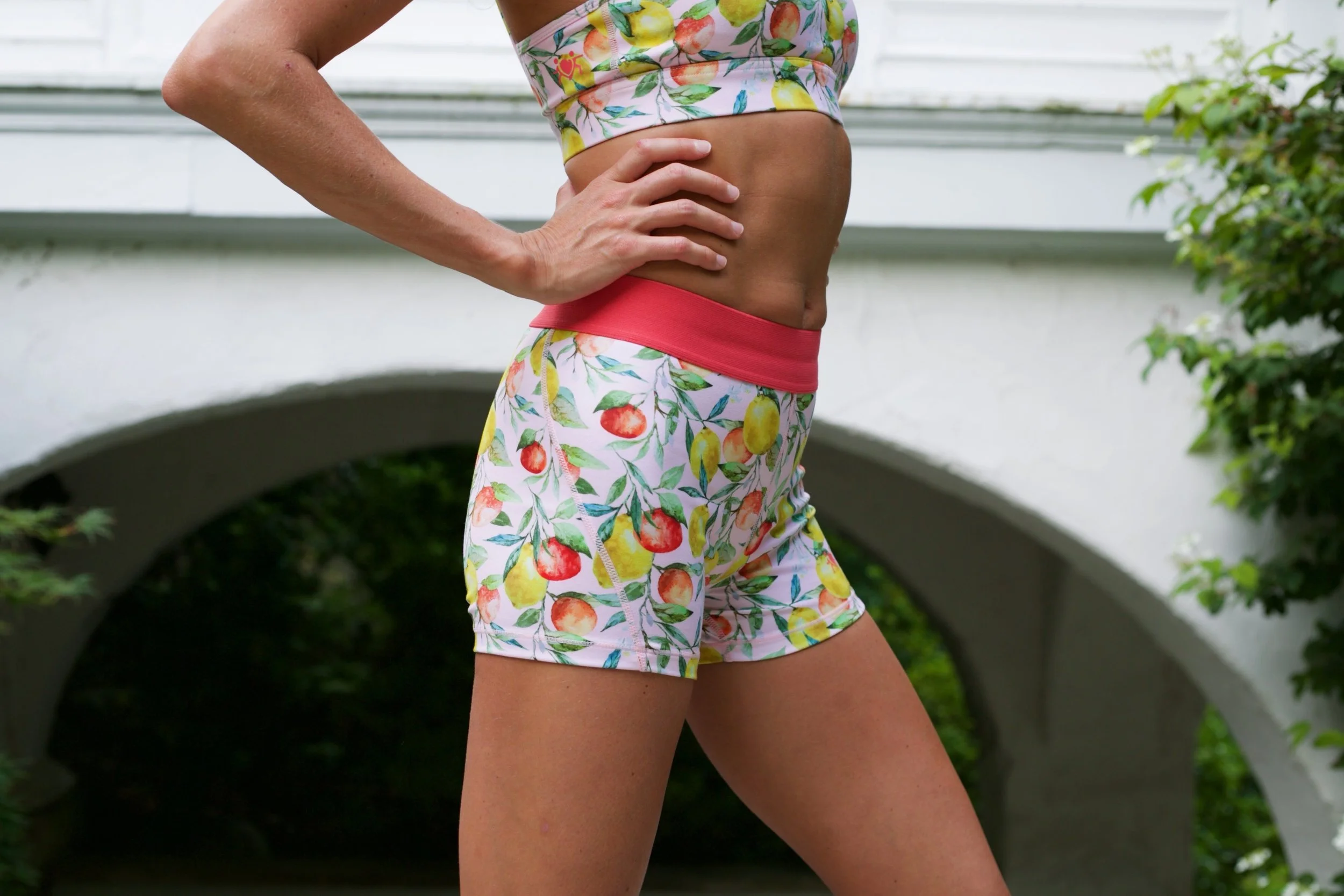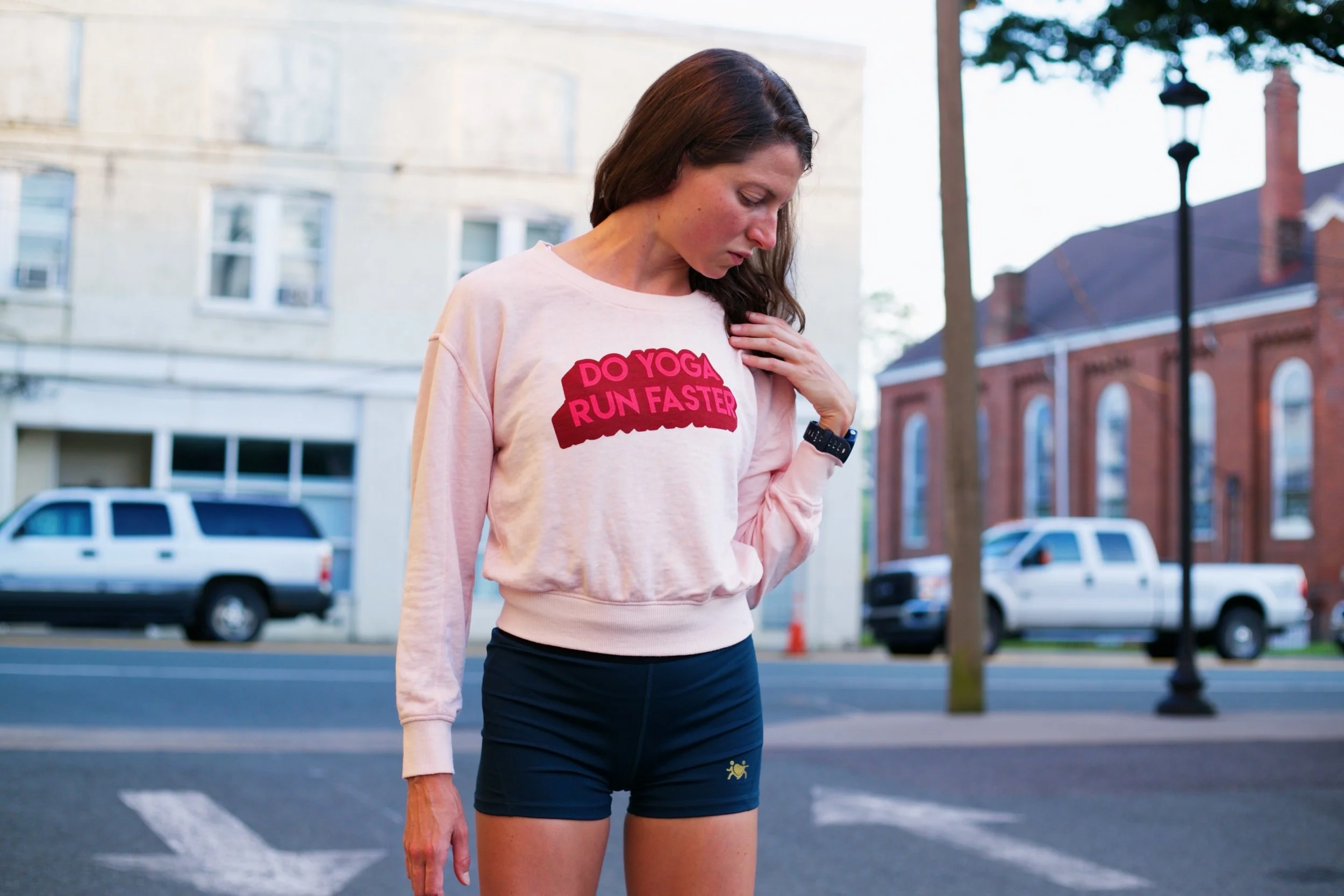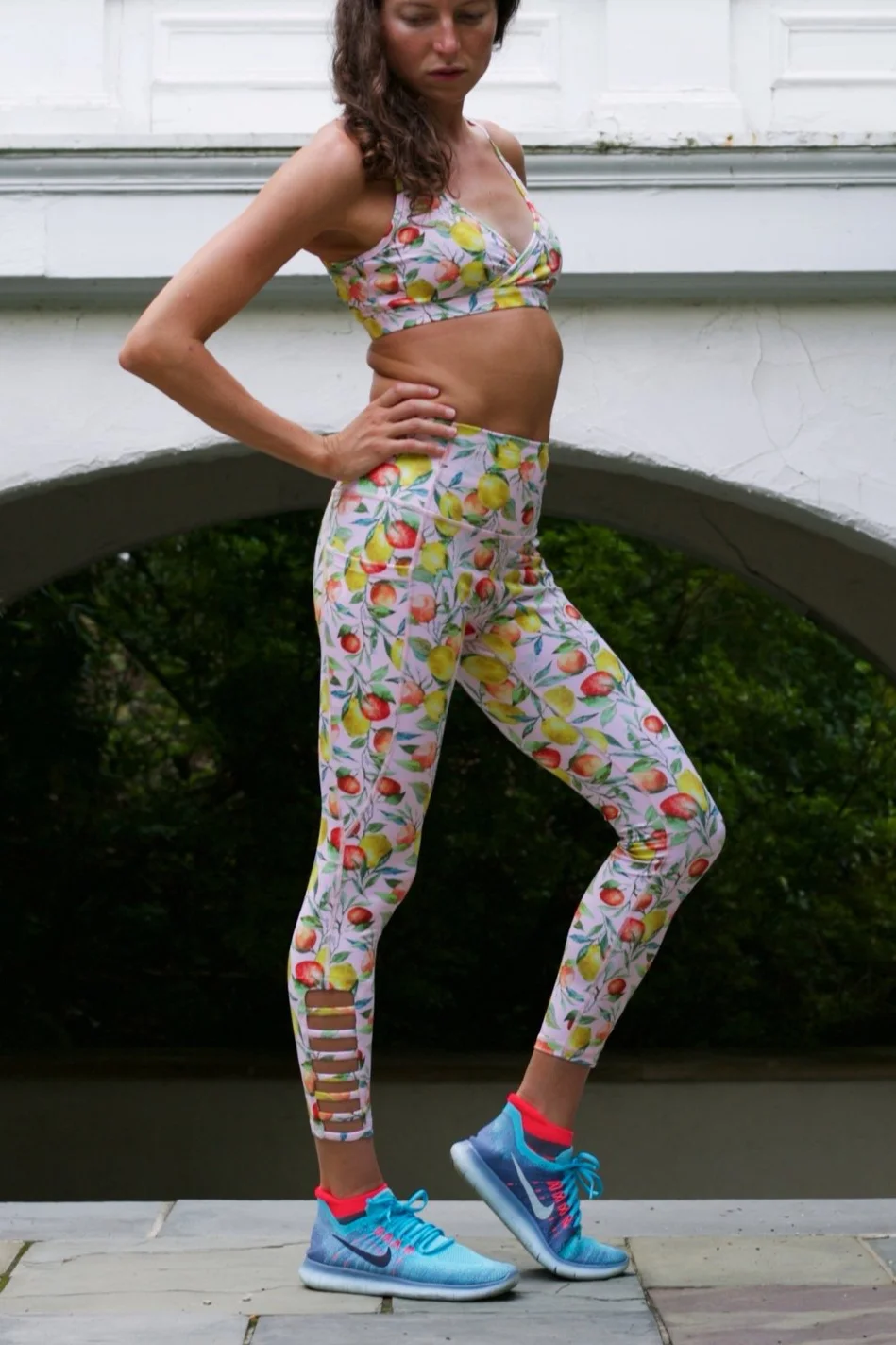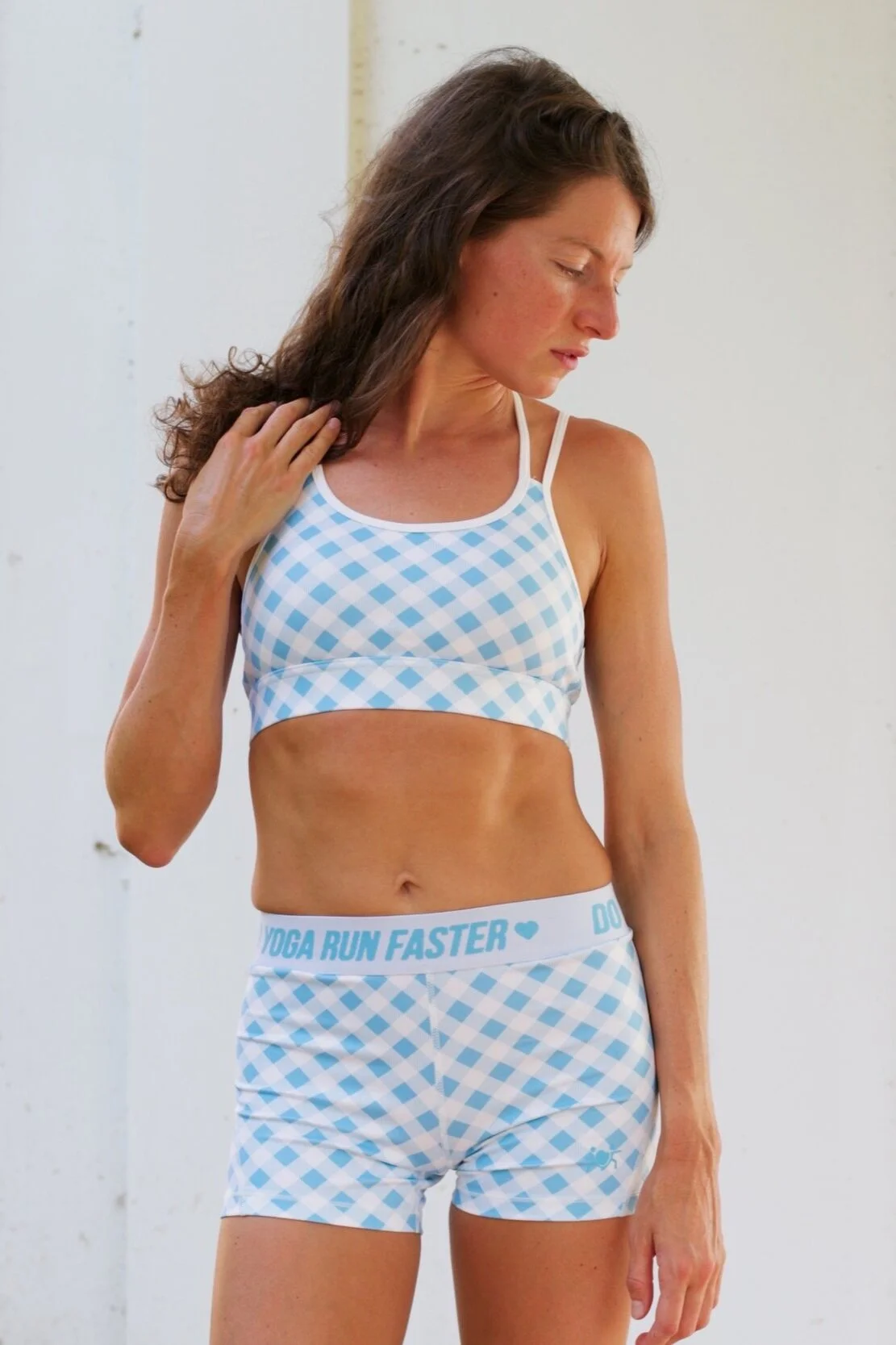Tips for Energized Pre-Run and On-the-Run Nutrition and Hydration
Especially for the beginning runner, figuring out how to fuel and hydrate to optimize how you both feel and perform on a run can be a bit challenging. Here I break down my very tried and tested tips for figuring out what—and when!—to eat before runs, during runs when needed, and how to hydrate before and during too! All of this is of course very individual—every body really is different!—but if you are just unsure of where to start in establishing your own routine, of which basic foods will sit better in your stomach to ensure you can just focus on running, I hope this will be a big help!
Pre-Run and On-the-Run Nutrition
Before a run, you primarily want to avoid anything that is going to disagree with your stomach. Hint: overly fibrous things, anything very saucy or acidy may very possibly going to be a bad move. Common sense might tell you that a really spicy chicken burrito may not be the best to ingest right before you head out for a run, but there are also some perhaps less obvious culprits for gastrointestinal distress (that I have unfortunately discovered firsthand) and which may also be best to avoid, such as apples and raw almonds. Apples are one big no-no! I learned the hard way back at the National Junior Olympics in high school that you want to avoid this particular fruit: I was so nervous before this big race that I honestly could barely handle the thought of eating anything (this is also why it is good to have a bit of a tested, go-to, “don’t have to think twice about it” pre-race meal by the way!). Thus, I ate an apple, because that seemed manageable enough, but that resulted in horrendous stomach cramps during the race, my hardly being able to run, and crossing the finish in dead last at which point the sympathetic audience gave me plenty of pity claps! So avoid those pity claps and avoid apples for pre-run! I also discovered along the way that cream of wheat is a bad idea while oatmeal is usually ok, and that orange juice is a big no-no. So in general: citrus, raw nuts, or anything particularly spicy or creamy or fibrous, is probably best saved for after the run or race! Everyone is an individual here, but just trust me on this: don’t have a pre-run apple!
(An aside: in high school, I also once had a chocolate milkshake and french fries an hour before 400 repeats on the track which made for a kind of painful experience, but honestly the shake and fries were so good that I had no regrets. So, here and there, you will probably just have something that maybe wasn’t the best idea, and it will be just fine—just don’t do that before a big meet or race!)
Some of my go-to sources of both pre-race and pre-run fuel! Hint: if you aren’t obsessed with Ultima yet, you will be after you try it!
By contrast, here are some good options to try for pre-run which tend to sit well in stomachs: bananas, anything with peanut butter such as peanut butter toast (which was my go-to in college), granola bars, Clif bars, oatmeal, or before a regular morning run, I often just have my usual chocolate pumpkin mugcake topped with peanut butter! The latter may be a bit hearty for some people, but I personally can definitely eat more right before a morning run!
Timing nutrition to your run or race:
Note that everyone is VERY different at the rate at which they digest, and how long of a window they need between eating and running. I have seen folks recommend 3 hours between eating and running, but I honestly would be hungry by then! Even for races, when it seems most runners have a larger window between their meal and running, I usually eat 90 minutes ahead of the race start time. Any earlier and I am honestly half-bonked during the race. So, you really just need to figure this one through trial and error, but you will discover what length of time you need between a meal and running. Once you do, stick with what works for YOU! (I have very vivid memories of being on the elite bus to MANY marathon start lines and I appear to be the only runner eating my breakfast while actually on the bus instead of evidently at some point in time earlier, before getting on the bus—once you know what works for you, don’t worry about anybody else! Your tried and tested pre-race meal is yours!)
While for races, I give myself 90 min. between pre-race meal and race start, for regular runs, I can eat almost immediately before my run, in particular if it is in the morning, and be totally good to go. So, intensity of effort is very much something to keep in mind: in general, the more intense the run is, the longer you may need, while for very easy efforts, you are ok to eat closer to the run itself. Similarly, the timing of your run within the day may affect what works best for run energy. For AM runs, I basically just eat and off I go! For any runs in the afternoon or evening, I definitely need a little more time between a full meal and a run. That said, I can also have something lighter like a Clif bar and basically immediately go on an afternoon or evening run.
For racing in the evening (which overall happens far less frequently than morning races), I have to be careful to not eat an overly late lunch, in particular if the race is short (i.e. a mile and I am all out sprinting the whole time) or if it is very hot outside. So, consider all the factors that may affect your stomach, but don’t overly fret about it: you will figure out what to do, and in general, you can count on both your regular runs and races to fall on a fairly reliable schedule so that you are able to plan and just go with what you know works. Your pre-race or run meal is just one of many components that determine how your race or run goes: the whole point is to make that as simple and to put as little brainpower towards that as possible so you can focus on everything else that is more fun, like running itself!
Consider the length of your run or race when considering your pre-run/race meal, as well as how “on-the-run” nutrition can benefit your energy levels
If you are headed out the door for your weekly long run, you may find you feel a little better with a little more in your system, especially in terms of energy later in the run. I love sleeping, but I have noticed that if I wake up early enough to actually make my mugcake versus just having something like a Clif Bar and banana combo, I definitely feel better energy-wise throughout the run. (This is what I typically have before any weekday run.)
These are the mini bottles (linked HERE) that I use for hydrating over longer runs!
For every race length except for the marathon, 95% of the time, I have a peanut butter Nature Valley granola bar, to which I add additional peanut butter, and a banana which I slice lengthwise, add peanut butter to, and then chop into pennies. This helps make the pre-race meal simple and worry-free because I know it will agree with me and then I can just focus on running my best race. For the marathon, I have everything that I usually have plus one of those cups of oatmeal that you make by adding water to, letting sit, etc. (This is also a relatively easy to come by pre-race meal: you want ideally to have something very transportable and easy to find or bring, rather than something more obscure just in case you travel to a race and forget to pack something! So aim at the outset to get in the routine of an easily found/made pre-race meal.) For the marathon, I often have to tweak this a little bit depending on how I feel at the moment; sometimes I have just 1 of the 2 granola bars within the pack. In sum, don’t worry too much if you have to adjust your pre-race meal especially a little on the fly. Sometimes here and there, I will have a pack of fruit snacks before a longer race as sort of a energy block substitute! You just want something that will be easy to bring, easy to eat if you are nervous, and that has been tried and tested a few times on a harder effort type run!
If you find for longer runs, such as your weekend long run, that you just have trouble getting enough in your system ahead of time, this is where on-the-run nutrition can be extremely beneficial. Try GUs or other gels for quick on-the-run energy, (Hint: chase these with some water!) I love GU Roctane gels, which I swear give me better energy than regular GUs, the non-Roctane version. During a marathon, I aim for a full gel every 5-7 miles. For just a long run, I might have 1-2 gels throughout as needed along with a drink with calories like Maurten or GU Roctane (which comes in nifty flavors like Summit Tea).
Once I get to runs in the 15-16+ mile range is when I really start ensuring I have an on-run energy source on hand. I like to carry the mini water bottles that are actually Nathan fuel belt replacement bottles with me! I am always surprised when I see runners out doing 15+ mile runs but taking in no hydration! Trust me, it really is not a big deal to carry a water bottle with you: you will be glad at mile 10 that you have it and are not going to be thirsty for the last 5 miles! Even better, during summer or warm weather long runs, find a way to loop back and grab extra mini bottles from beside your car, from off your front porch, etc.
Hydrating
Staying hydrated might sound like a no brainer: for the most part, we understand that this is something we should do, and it really is not too too hard to figure out. But similarly to how certain foods may sit better in your stomach, so too may certain liquids. Again, this in general is a little bit common sense: probably not the best idea, for instance, to have something super carbonated right before a race. In general, you just want to be sure you are drinking enough water, and it helps to have a water bottle on hand throughout the day. Besides just plain old water though, you do need electrolytes as an athlete! My go-to is Ultima Replenisher (which I honestly just drink all day at this point, I probably have 5 or so servings a day!). There are times when you also actually need to be drinking sugar as an athlete, but you also don’t need to be drinking sugar all day; this is one reason why I also really love Ultima—it is very natural and actually tastes really really good so I stay more hydrated naturally. (In particular, as I just had an extremely awful root canal, I am even more aware of the effects of sugar on tooth enamel—I feel like people often mention sugar as something to obviously not over consume, but too often they leave the effects on teeth out of the question!)
So, in sum, hydration just means making sure you actually drink some water and some electrolytes, and that you listen to your body. This is also where the mini water bottles become especially helpful for longer or particularly warm runs: you really really will be glad to have that drink literally on hand! For runs over 70 min. in length, or for runs in extremely humid or hot conditions, or for races where it is warm at all or that are over 10k, I basically always ensure that I have electrolytes to drink!
Race Day
On race day, do not try anything new. (This is the number one rule, the old adage, about race day prep!) Here is when you want to rely on the foods and drinks that you know your body likes and is used to, so that you can get your legs moving without worrying about…other things. If you always have coffee before your run, have coffee on race day, etc.! This doesn’t have to be rocket science…just don’t go and have an apple out of the blue like I did back in high school!
Once you find a few options that work for you, it is a super very good idea to use one of those tested pre-race meals for race day too!
Hope these tips help, especially if you are newer to running or gearing up for your first race! Once you find a good pre-run fuel system for you, you will fly through that finish line feeling like your best self—and with only the best kind of claps!
